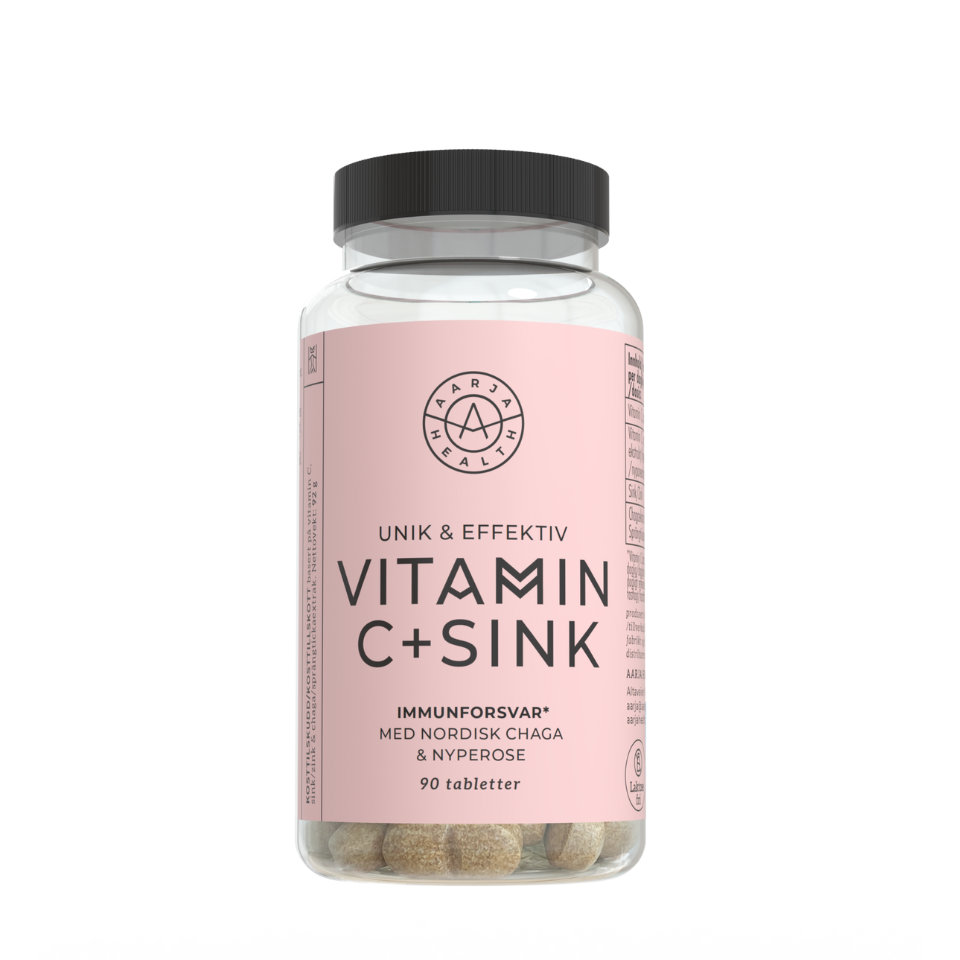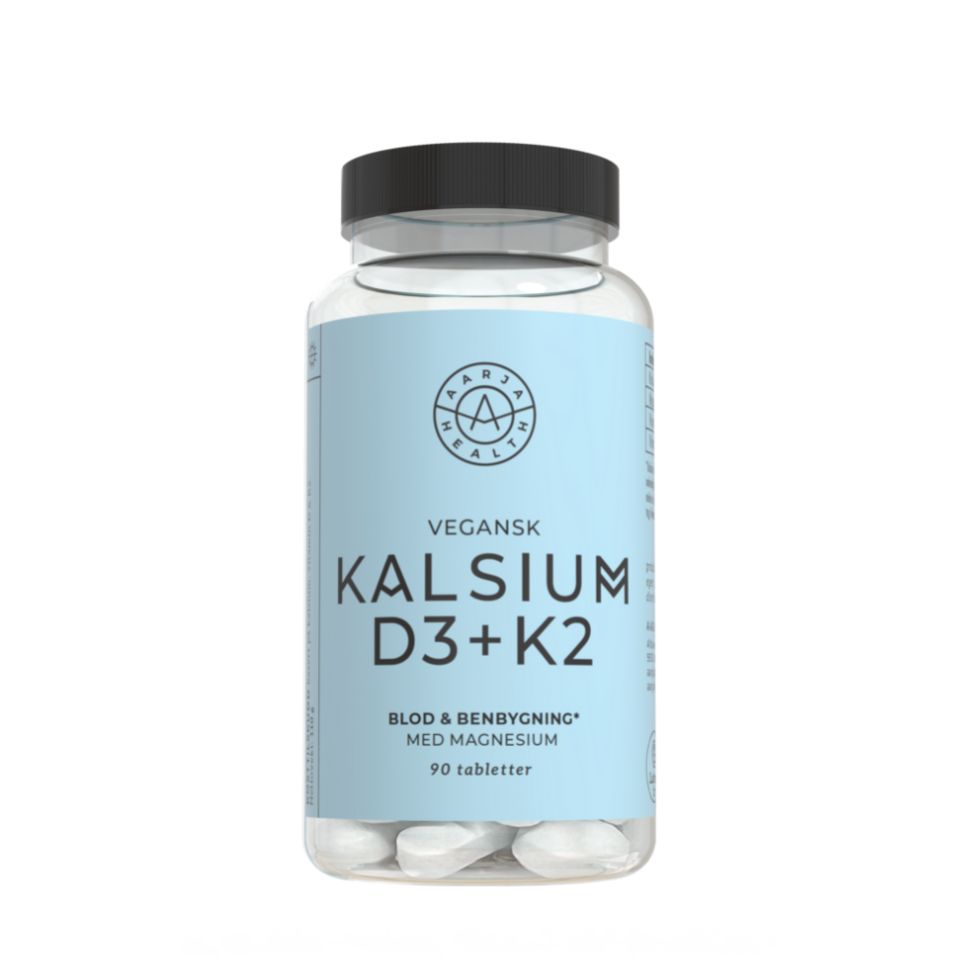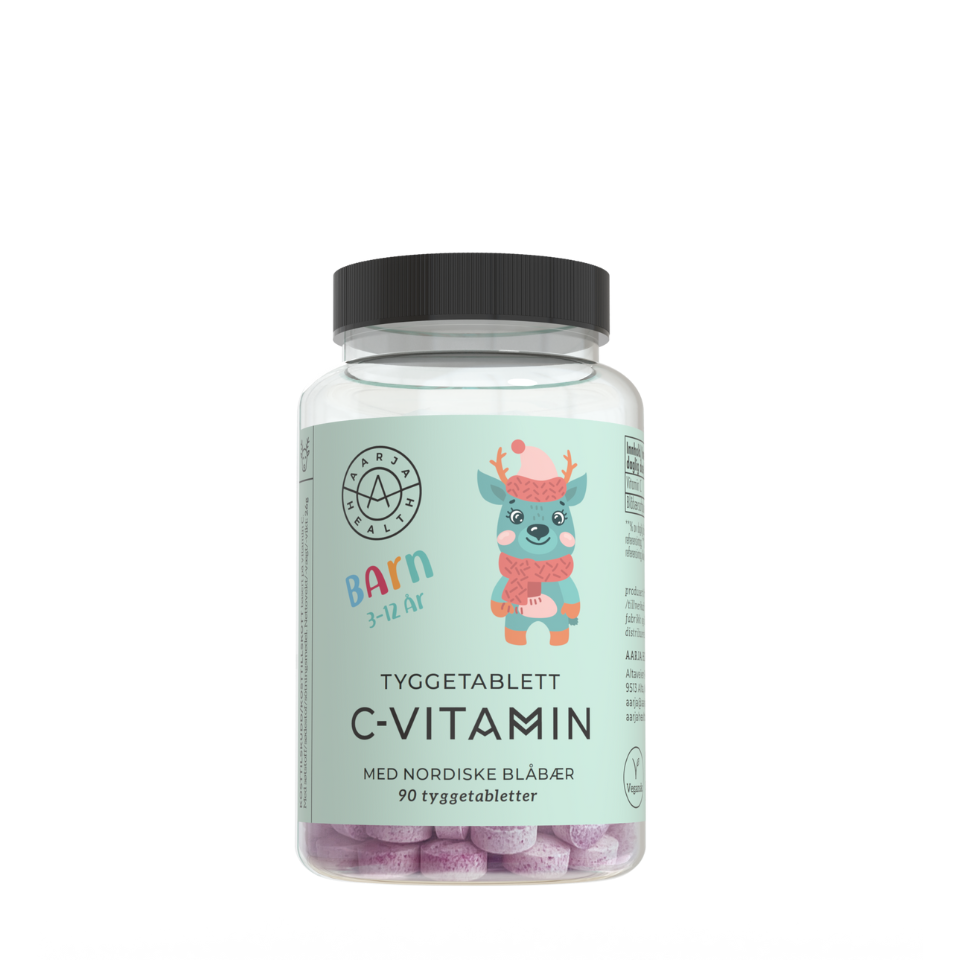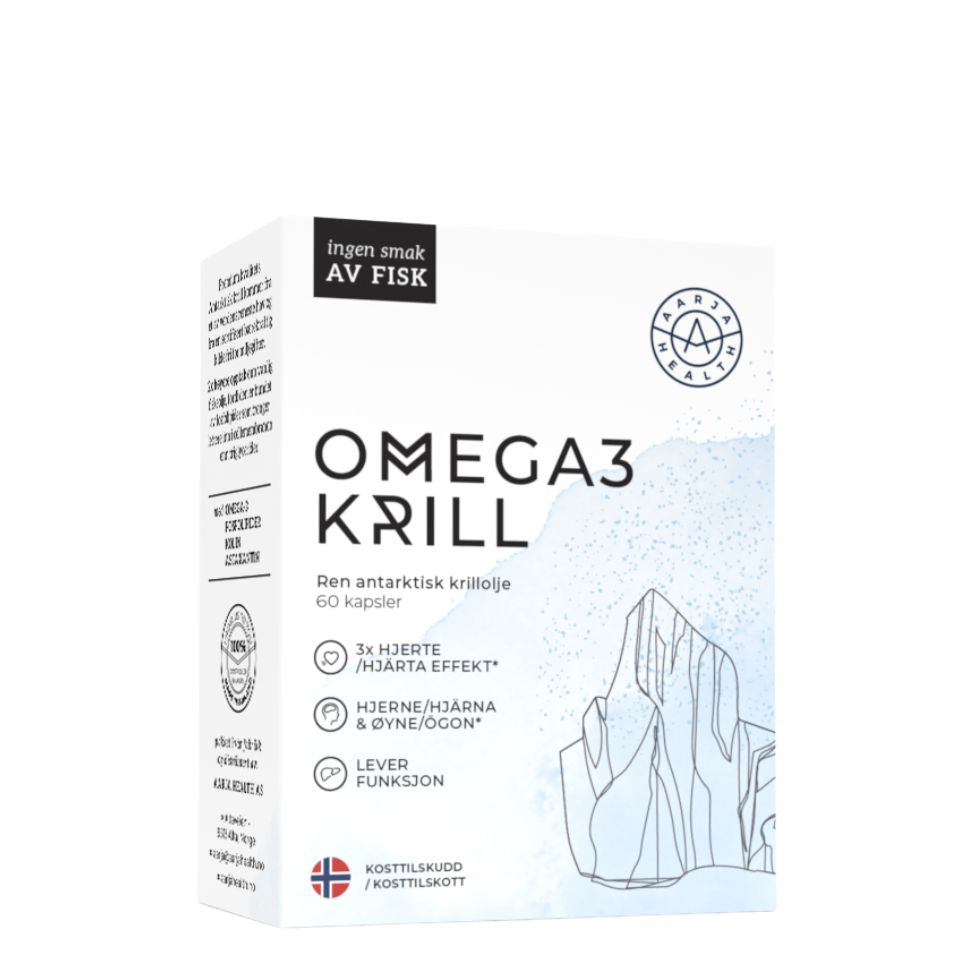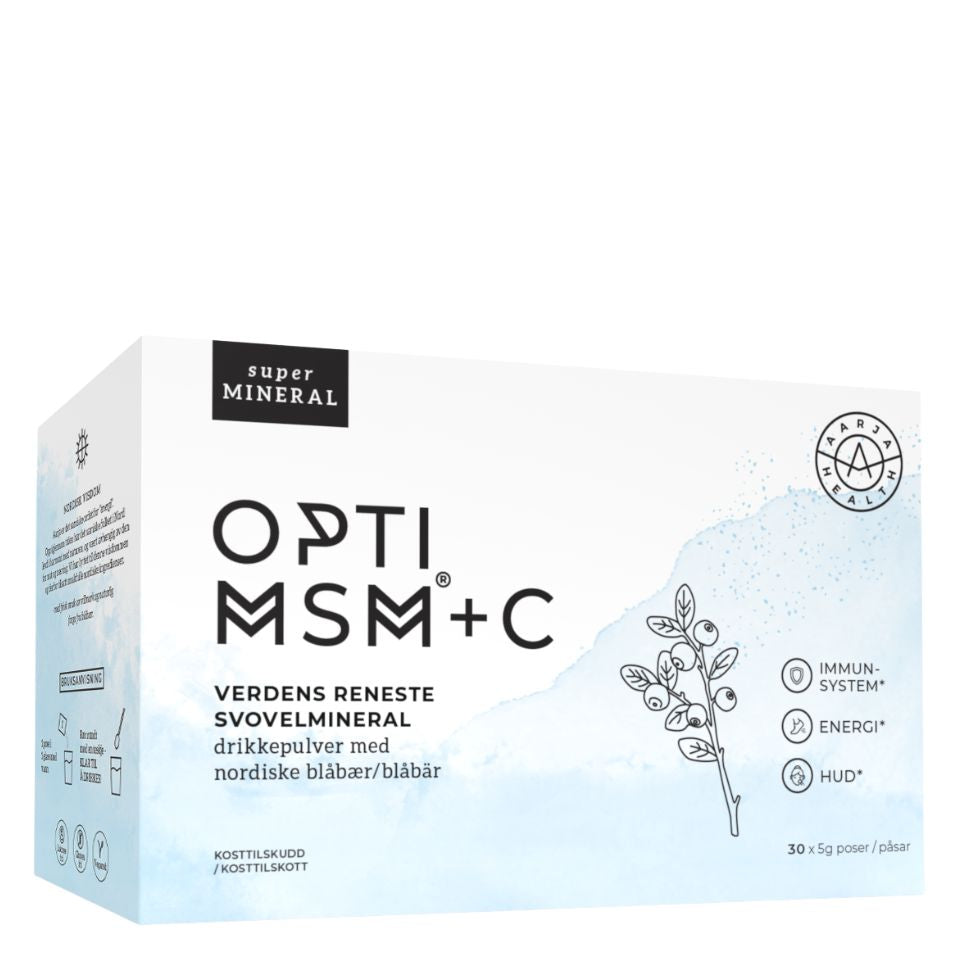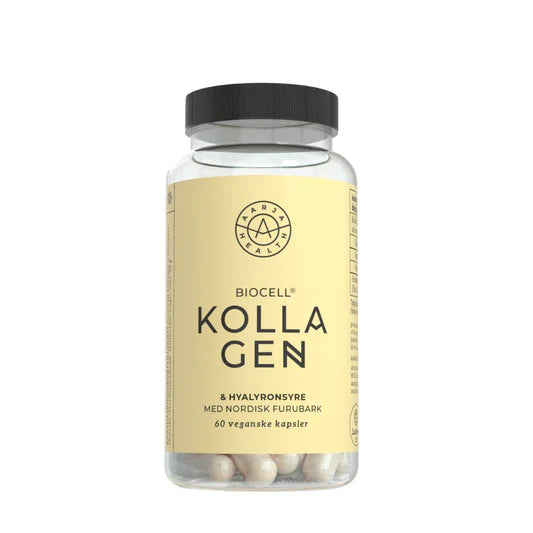
Which Vitamins Should I Take and When?
Should magnesium be taken in the morning or in the evening? What is the recommended intake of vitamin B12? Why should you take vitamin D with a breakfast that contains fat? It's easy to get lost in the vitamin jungle. After reading this text in 3 minutes, you will know how much vitamins you should take in during the day and when you should take them to ensure optimal absorption.
Calcium and vitamin C should be taken at different times.
The recommended daily intake of calcium is 600 milligrams (mg) for children and 800 mg for adults. The need varies slightly depending on age, gender and size.
Growing children and women who are pregnant or breastfeeding need calcium the most. Along with vitamin D3, calcium also helps fight osteoporotic fractures and broken bones by reducing bone mineral loss in postmenopausal women. Read more about the health benefits of calcium here.
You can take calcium in the morning or in the evening. However, we recommend that you take it in the evening if you take vitamin C in the morning. Calcium can negatively affect the absorption of iron, which vitamin C improves, so you should not take calcium and vitamin C at the same time. It is good to take calcium with a snack in the evening, as some people may feel sick if they take calcium on an empty stomach.
To ensure an optimal intake of calcium, take Aarja Health Kalcium, D3+K2 with blueberries . Vitamin D3 contributes to the absorption of calcium. As for vitamin C, we recommend our own with Zinc, Chaga and Rosehip
Vitamin B12 is an important dietary supplement for vegans.
The recommended daily allowance of vitamin B12 is 2 micrograms (μg) for men and women. The recommendation is 2.6 micrograms daily during pregnancy and breastfeeding. For children, the recommended intake of vitamin B12 is 0.5-1.3 micrograms daily.
Vegans and vegetarians do not get enough vitamin B12 from food. Therefore, it is important to ensure an adequate intake of vitamin B12 by taking a supplement daily.
We recommend taking vitamin B12 in the morning as it can have stimulating effects in some people. If you take vitamin B12 as a dietary supplement, you can place the tablet under the tongue to ensure optimal absorption.
Do you need a supplement of vitamin B12? Try Aarja Health Vitamin B12 with blueberries. It is a chewable and tasty tablet that contains 1000 micrograms (μg) of vitamin B12 in the form of highly absorbable methylcobalamin. You can also get B12 from Aarja Health Curcumin + Ginger & B12 :
Vitamin C contributes to the absorption of iron
The need for vitamin C, also called ascorbic acid, varies, but an adult should get at least 75-100 milligrams (mg) of vitamin C daily. For children, the recommended daily dose of vitamin C is 40-50 milligrams per day.
Exertion, stress, breastfeeding and smoking increase the need for vitamin C slightly. Vitamin C cannot be overdosed, as our bodies get rid of extra vitamin C. Larger doses of vitamin C can be taken momentarily, because it can shorten the duration of the flu and reduce symptoms.
You can take vitamin C in the morning or in the evening. However, we recommend that you take it in the morning, as vitamin C can have a slight stimulating effect. Vitamin C contributes to the absorption of iron. Iron is optimally absorbed on an empty stomach, so vitamin C is also good to take on an empty stomach.
Buy Aarja Health's popular Vitamin C 500 which also contains zinc and chaga or Aarja Health's tasty OPTIMSM + C with blueberry drink powder !
Also try Aarja Health's product Kids Vitamin C with blueberries . The good taste of the chewable tablets comes from xylitol and wild blueberries.
The need for zinc increases during pregnancy and intense exercise.
The recommended intake of zinc is 9 milligrams (mg) for adult men and 7 milligrams or women daily. Pregnancy, breastfeeding, intense exercise, sweating and aging increase the need for zinc. For pregnant women, the recommended daily dose of zinc is 9 milligrams and 11 milligrams when breastfeeding.
Vegans and vegetarians may need up to 30 percent more zinc than normal because plant phytic acid binds zinc. Read more about the health benefits of zinc here.
You can take zinc in the morning or in the evening as the timing does not affect absorption. However, we recommend that you take it in the morning as zinc can have mild stimulating effects on some people. Take zinc with breakfast, as some people may feel sick when taking zinc on an empty stomach.
Aarja Health's Vitamin C 500 contains 10 milligrams of zinc.
Magnesium can improve sleep quality
The recommended daily allowance of magnesium is 280 milligrams (mg) for women and 350 milligrams for men. The recommendation for children aged 6-9 years is 200 milligrams and for children aged 10-13 years 280 milligrams of magnesium per day.
You can take magnesium at any time of the day. However, it is recommended to take magnesium in the evening before going to bed, as it can help the muscles and nervous system to relax and improve the quality of sleep.
Try now Aarja Health MAGNESIUM3 whose recommended daily dosage contains 375 milligrams of three highly absorbable forms of magnesium: magnesium citrate, magnesium bisglycinate and magnesium taurate.
Take vitamin D with a breakfast that contains fats.
The recommended daily dose of vitamin D is at least 10 micrograms (μg) for both adults and children. Experts do not agree on whether the recommended intake is sufficient. It is difficult to get enough vitamin D from food and sunlight, so it is recommended that it be taken as a dietary supplement. Read more health benefits of vitamin D here.
We recommend that vitamin D be taken in the morning because it can negatively affect melatonin secretion, making it more difficult to fall asleep or impairing the quality of sleep in some people. You should take vitamin D with food that contains fat. To ensure optimal absorption, you can take D3 together with Omega3 supplements. Aarja's natural and pure OMEGA3 BOOST krill oil capsules contain plenty of essential EPA and DHA fatty acids for heart and general well-being.
Order now Aarja Health Vitamin D3 with lingonberry, Calcium, D3+K2 with blueberries , which contains 50 micrograms of vegan vitamin D3 and high-quality OMEGA3 krill oil capsules .
Summary
Calcium: Recommended daily dose is 600 mg for children and 800 mg for adults. Take calcium in the evening with a snack.
Vitamin B12: Recommended daily dose is 0.5-1.3 μg for children and 2 μg for adults (2.6 μg if you are pregnant or breastfeeding). Take vitamin B12 in the morning.
Vitamin C: recommended daily dose is 40-50 mg for children and 75-100 mg for adults. Take vitamin C in the morning on an empty stomach. Aarja's OptiMSM + C with blueberries is an excellent morning starter drink!
Zinc: The recommended daily dose is 9 mg for men and 7 mg for women (9 mg if you are pregnant and 11 mg if you are breastfeeding). Take zinc in the morning with breakfast.
Magnesium: Recommended daily dose is 200 mg for children aged 6-9 years, 280 mg for children aged 10-13 years, 280 mg for women and 350 mg for men. Take magnesium in the evening before going to bed.
Vitamin D: recommended daily intake is at least 10 μg per day for both children and adults. Take vitamin D in the morning in conjunction with a breakfast that contains fats.
Collagen: Collagen is recommended to be taken on an empty stomach. However, we recommend taking it together with our OptiMSM + C drink in the morning! You can also take collagen before bed.
Omega3: Take Omega3 Boost krill oil capsules along with vitamin D containing supplements.


